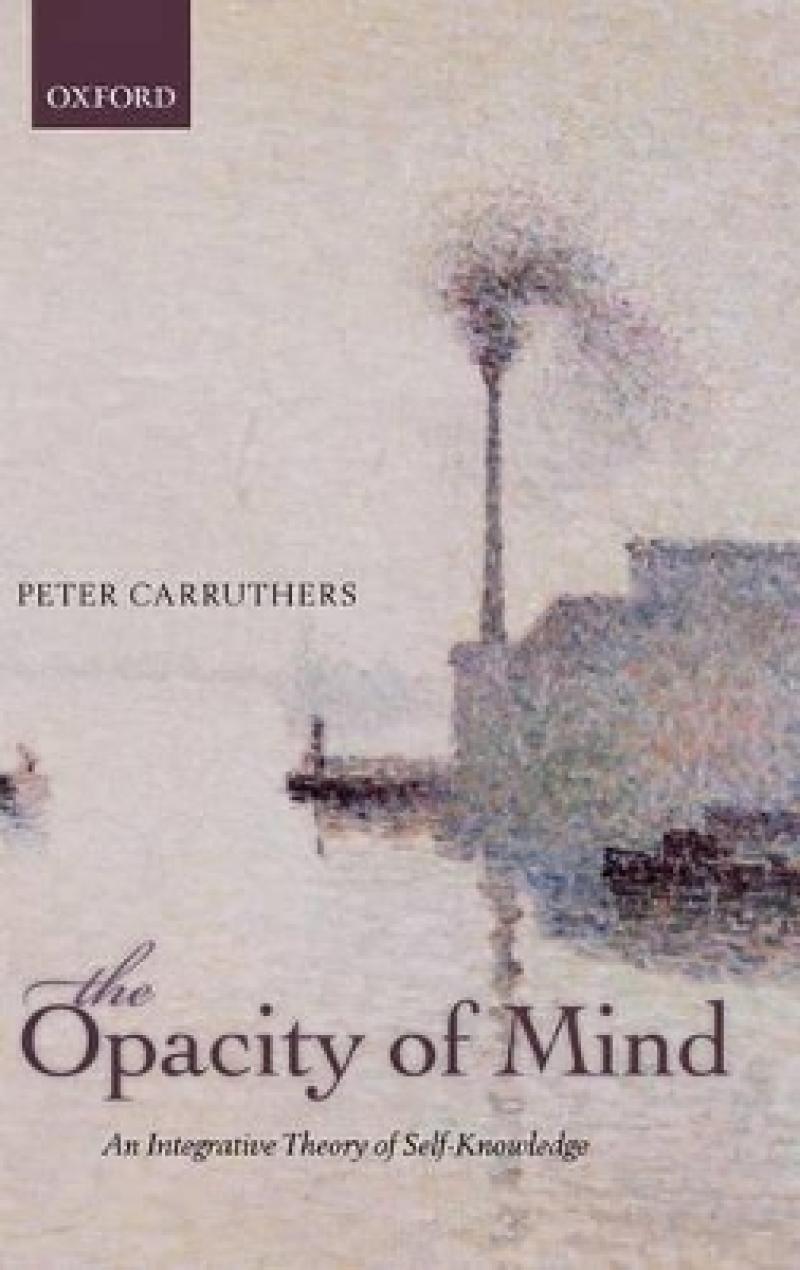The Opacity of Mind is a challenging and provocative book, informed by an extraordinary knowledge of scientific psychology and cognitive science.
Jose Luis Bermudez, Mind
The Opacity of Mind is a terrific book. In a nutshell, the plot is this: Gilbert Ryle meets contemporary cognitive science, and together they produce a novel and exciting theory of self-knowledge . . . This hardly scratches the surface of Carrutherss rich and thought-provoking book. Many other topics are discussed at length: mental architecture, inner sense theories, third-person mindreading, alleged dissociations between self- and other-knowledge, the evidence for widespread confabulation, and much more. As is usual with Carrutherss work, the book is packed with numerous references to the empirical literature--a welcome corrective to work on self-knowledge which blithely disregards it. The Opacity of Mind contains much to disagree with, but also much to learn.
Alex Byrne, Notre Dame Philosophical Reviews
The Opacity of Mind offers a vigorous defense of the startling view that self knowledge is based on error prone inferences from sensory experience rather than direct access to what we are thinking. Drawing heavily on cognitive science, Carruthers makes his radical thesis look eminently reasonable, and he delivers fatal blows to the competition.
Jesse Prinz, Distinguished Professor of Philosophy, City University of New York
In this terrific book, Peter Carruthers aims to show that current theories of our knowledge of our own mental states dont sit at all well with our best theories of how the mind works. Carruthers also proposes and defends a radical alternative theory, which he succeeds in lending an impressive degree of support with appeal to both philosophical argumentation and a wealth of considerations drawn from recent work in cognitive science and related areas. In doing so, he offers a model of how an enduring and central philosophical issue can be fruitfully engaged in an empirically-informed manner. Philosophers of mind and epistemologists continue to be fascinated by our knowledge of our own mental lives; such readers will be fascinated by Carrutherss book, whether or not they agree with its deeply revisionary conclusions.
Aidan McGlynn, Philosophical Quarterly
The Opacity of Mind is a challenging and provocative book, informed by an extraordinary knowledge of scientific psychology and cognitive science. Carruthers certainly places a formidable burden on anyone challenging the key ideas of the ISA theoryin particular, to anyone who wants to maintain any sort of transparent access to propositional attitudes.
José Bermúdez, Mind
Those familiar with the scholarship in this area will find here a substantive, well-defended alternative to existing accounts in the study of self-knowledge ... Moreover, the clarity and thoroughness that Carruthers brings to the subject makes the book more than suitable for introducing students to the role of philosophy in the interdisciplinary study of human cognition.
CHOICE
Carruthers offers a robust antidote to dominant views about self-Knowledge. In particular, Carruthers bracingly takes aim at any theory of self-knowledge on which we have transparent introspective access even to our current propositional attitudes and affective states. ... a challenging and provocative book, informed by an extraordinary knowledge of scientific psychology and cognitive science.
Jose Luis Bermudez, Mind
